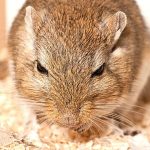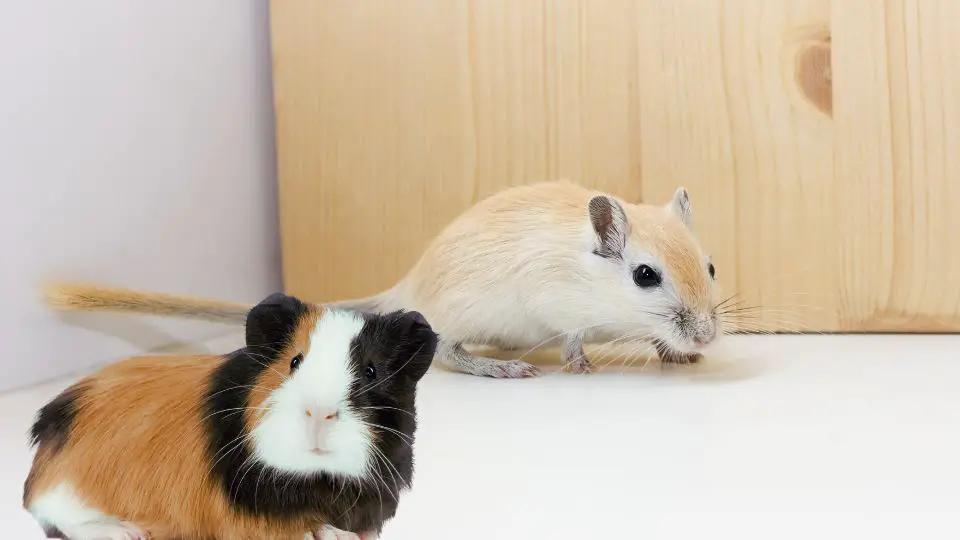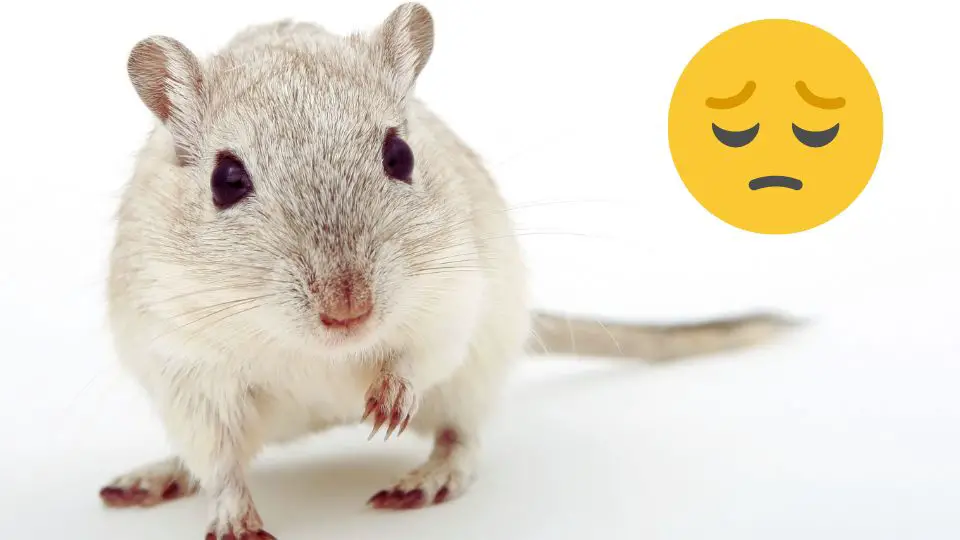Does your gerbil have a thing for scratching his cage? Don’t worry, you’re not alone—many gerbil owners have been in your shoes!
Gerbils are naturally inquisitive creatures, and they love to explore their environment. That’s why you’ll often find them scratching at the cage walls, trying to get a better view of the world around them. This behavior is perfectly normal and natural – but it can also be quite annoying if your gerbil is being particularly persistent!
So what causes this behavior, and how can you stop it? Let’s take a look.
Possible causes
There are several possible causes for your gerbil scratching his cage, including boredom, anxiety, or an attempt to create a nest.
Boredom
If your gerbil is not getting enough stimulation and interaction, it might start to scratch its cage out of boredom. This is a natural instinctive behavior, as your gerbil is trying to find something entertaining to do.
To prevent this, make sure you spend time playing and interacting with your gerbil regularly. We always recommend rotating the toys in your gerbil’s cage often, to keep them engaged and entertained.
Exploring the environment
Gerbils often scratch the walls of their cage to get a better view outside. This is simply an instinctive behavior, as they’re trying to explore their environment further.
To minimize this behavior, make sure you have plenty of toys and activities in your gerbil’s cage, so they don’t feel the need to look elsewhere for entertainment.
Unsuitable bedding
Sometimes gerbils scratch their cages because the bedding isn’t suitable for them. If you have recently changed the bedding, your gerbil may not be used to the new material and could be scratching it in an attempt to make a nest. Unsuitable bedding can also cause irritation, allergic reactions or just plain discomfort.
To prevent this, make sure you change the bedding regularly and the material you use is designed for gerbils. You can also add extra paper towels or shredded toilet paper to their cage to provide a more comfortable bedding material.
Mites or other parasites
Mites or other parasites can cause your gerbil to scratch its cage more often than normal. This is because the mites are extremely bothersome, and your gerbil is trying to get rid of them by scratching.
To prevent this, make sure you clean your gerbil’s cage regularly and check for any signs of mites or other parasites. If you do find any, take your gerbil to the vet right away for treatment.
Stress
Gerbils are naturally very curious creatures and can become easily stressed if they don’t have enough space to explore. If your gerbil’s cage is too small, or it doesn’t get enough social interaction, it might start to scratch its cage out of stress.
To prevent this, make sure your gerbil has plenty of space to explore and that you spend time playing with it regularly. You should also avoid sudden changes, like loud noises or too much light, as this can cause your gerbil to become stressed.
Medical conditions
Anxiety or medical conditions can also cause your gerbil to scratch its cage more than usual. If you’ve noticed that your gerbil is scratching more than normal, it’s a good idea to take them to the vet for a check-up.
How to Stop Your Gerbil Scratching Its Cage
The first step in order to stop your little pet from scratching its cage is to understand from what is causing the behavior in the first place.
In general, you should try to provide more stimulation and interaction for your gerbil, including rotating the toys in their cage often. You should also make sure that the bedding in their cage is comfortable and suitable for gerbils. Finally, make sure to keep your gerbil’s cage clean and check for signs of mites or other parasites.
If you are still having trouble getting your gerbil to stop scratching its cage, it’s best to take them to the vet for a check-up. The vet will be able to identify and help treat any underlying medical conditions that might be causing the behavior.
What Does Gerbil Biting Cage Bars Mean?
Gerbils are natural burrowers, and in the wild, they would be constantly digging and gnawing on their surroundings. In captivity, this behavior can manifest as gnawing or biting on the bars of their cage. There are a few reasons why a gerbil might bite or gnaw on the bars of their cage:
- Lack of appropriate gnawing materials: Gerbils have an instinct to gnaw on things to keep their constantly growing teeth at a manageable length. Without appropriate gnawing materials, such as chew toys or branches, gerbils may turn to the bars of their cage as a source of stimulation.
- Boredom: Gerbils are active animals that need plenty of stimulation to keep them occupied. Without enough activities, toys or other things to keep them busy, they may begin to gnaw on the bars of the cage out of boredom.
- Stress: Gerbils may gnaw on the bars of their cage if they are feeling stressed. This can be due to a variety of factors such as, noise, changes in environment, overcrowding and more.
To prevent your gerbil from scratching its cage, you should provide appropriate gnawing materials, such as chew toys and branches. You can also offer a variety of toys and activities to keep your gerbil stimulated and reduce boredom.
If you suspect your gerbil is stressed, try to identify and remove the source of stress. Regular monitoring your gerbil’s behaviour and environment will help you to keep your gerbil happy and healthy.
Can Gerbils Bite Through Cage Bars?
Gerbils have strong teeth that they use to gnaw on things in order to keep their teeth at a manageable length. In some cases, they may be able to gnaw or bite through the bars of their cage, especially if the bars are made of a softer material like plastic.
However, gerbils are small animals, and most cages are made of metal or other durable materials which are strong enough to withstand their gnawing and should not be easily bitten through.
It is important to provide appropriate gnawing materials, such as chew toys, to redirect this natural behavior, as well as to regularly inspect the cage to ensure that it is in good condition.
Conclusion
Gerbils are active, curious animals that may express their natural instincts by scratching or gnawing on the cage bars. Understanding why your gerbil is scratching or gnawing its cage will help you to stop the behavior and keep your gerbil happy and healthy.
Providing appropriate gnawing materials, such as chew toys and branches, in addition to plenty of activities, toys and interaction can help reduce boredom and stress that may lead to destructive behaviors. Lastly, regular monitoring of your gerbil’s behavior and environment is important to ensure that their cage is in good condition.







